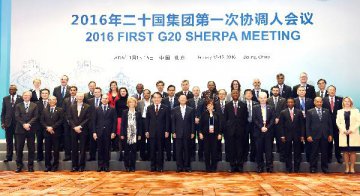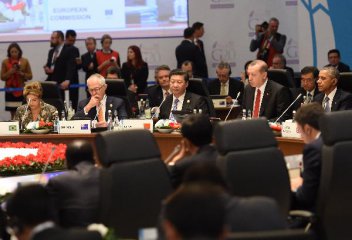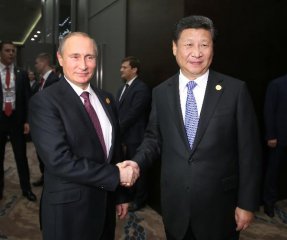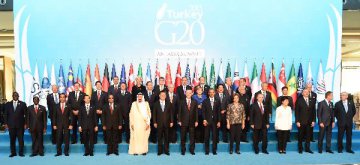
The Group of Twenty (G20) Summit should push forward change on income inequality, financial stability, climate change and migration, said an expert on global economics.
The summit should focus on a number of issues which really need international cooperation, said Guntram Wolff, director of Brussels-based think tank Bruegel told Xinhua in a recent interview.
One topic to pursue is the global rise of income inequality, said Wolff, a former economics and financial expert with the European Commission. "There is a global problem that global income goes more and more to capital income and less and less to labor income, so that the labor income share globally is falling," said Wolff.
Governments must tax capital and prevent it from illegally reaching tax havens, he added. Though taxing capital income is extremely difficult, he believes the G20 countries could lead on this issue by stepping up cooperation.
The second topic the summit should focus on is stabilizing the financial system or even restructuring it, according to Wolff. The financial system has a very large and well-developed banking system but too small capital market-based financial inter-mediation such as equity or bond markets, which are less developed and less well-supervised, he said.
"This will end up being a problem because when the banking system hits trouble, financing dries up," said Wolff. This is particularly relevant to China and the European Union. Both need to make their financial systems more robust and more conducive to global growth, he added.
As for the issue of how to step up efforts on climate change, Wolff said a good follow-up process to the Paris agreement is urgently needed. The G20 should send clear signals to the market that either an emission trading system or taxation of greenhouse gases will come into effect.
The countries making progress on combatting climate change have a disadvantage temporally because of tax penalties on some industries. Some industry will move from one country to others that are reluctant to take action, which will be unfair because fighting climate change is a common goal, Wolff said.
"This is really a coordination problem that can be achieved at the G20 level," he added.
In addition to the above, Wolff said he would like to add the issue of migration, a key concern for a number of G20 countries. "The conflict in Syria is a global conflict with a lot of players including Russia, the United States, the EU, Turkey and so on; it's really a global issue that should deserve the attention of the G20 also," he said.
Migration issues basically includes two aspects, according to Wolff. One is achieving peace in order to reduce the number of refugees, and the other technically managing the current migration problem.
"We should encourage the countries which are not taking refugees to take them: including the United states and Britain," he said. Migration should not be seen a problem put to Germany and Sweden, or Greece and Italy, because the origin of this conflict dates back to long ago and many players that sit around the G20 table are also involved in it, he added.
"It's also a humanitarian catastrophe and I hope the G20 could jointly make some progress," Wolff said. China will host the 2016 G20 Summit in the eastern city of Hangzhou on Sept. 4-5 under the theme "Building an innovative, invigorated, interconnected and inclusive world economy."























Latest comments